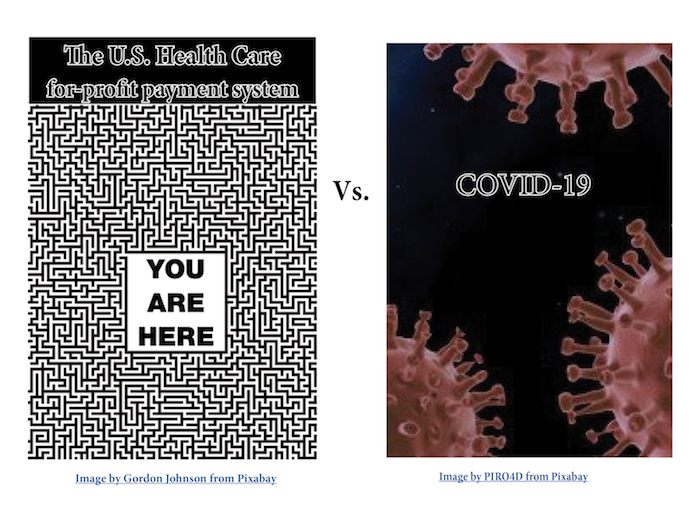by T.R. Reid
President Trump has been arguing recently that other advanced democracies are having as much trouble with the Coronavirus as the U.S. To prove his point, he noted the other day that new cases have been reported in New Zealand. “Big surge in New Zealand,” the president said. “It’s terrible. We don’t want that.”
The problem, as late-night TV comics (and the Prime Minister of New Zealand) pointed out, was that the “big surge” in New Zealand amounted to nine new cases of the disease — on a day when the U.S. reported 41,833 new cases. The Johns Hopkins “Covid Dashboard” says our rate of new cases and deaths, proportional to population, is more than 100 times greater than New Zealand’s, even after the “big surge” that Trump found so terrible.
But then, it has been difficult for the president to find any advanced country that has suffered as badly as the U.S. from this year’s pandemic. Since the virus spread around the world early this year, nearly all the other wealthy, free-market democracies –Germany, Austria, Denmark, Netherlands, Ireland, Japan, South Korea, Australia, Canada, etc. –have had fewer deaths, per capita, than the U.S.A,
How can that be? The U.S. is the richest, most innovative nation on Earth. We have the finest medical schools and research labs. Why does a country with our wealth and talent lead the world in the number of Coronavirus cases, and deaths?
One reason is that our leaders were slow to respond to the pandemic. President Trump kept insisting that the disease was “under control” and would “just go away,” even as medical experts were forecasting a disaster. The president declared on March 6 that “anybody that wants a test can get a test.” This was not true then, or now, seven months later. But the administration has never created a national testing strategy, perhaps because of the president’s reluctance to admit that he was mistaken.
The larger problem, though, is the American health care system itself. We have created an exorbitantly expensive, absurdly complicated structure that provides excellent care to some –but leaves tens of millions with little or no access to the miracles of modern medicine.
Even before the pandemic, the U.S. health care system stood out among the nations of the world for its high costs and poor results. Our total medical bill is over $3.5 trillion per year – about one of every five dollars we spend. This is roughly double the per-capita spending of other rich countries. But on the standard measures of national health –life expectancy, recovery rates from disease or injury –the U.S. lags behind all the other advanced democracies.
These pre-existing problems have been reflected in our response to Covid-19. There has been a disproportionate rate of serious complications, and deaths, among racial minorities in the U.S. Why? Because our system does not provide adequate care to people who can’t get decent insurance.
Some 29 million Americans have no health insurance; another 70 million have plans with such high deductibles that they generally can’t afford to go the doctor. All the other industrialized democracies have found ways to guarantee health coverage for everyone. That’s why most other countries –even those that faced huge outbreaks of Covid-19 last spring –have proportionally fewer deaths than the U.S.
The first step to assure better national health at reasonable cost is to make the moral commitment, at long last, to assure that every American can get medical care when it’s needed. Then we’ll be in much better shape to handle the next pandemic that comes along.



